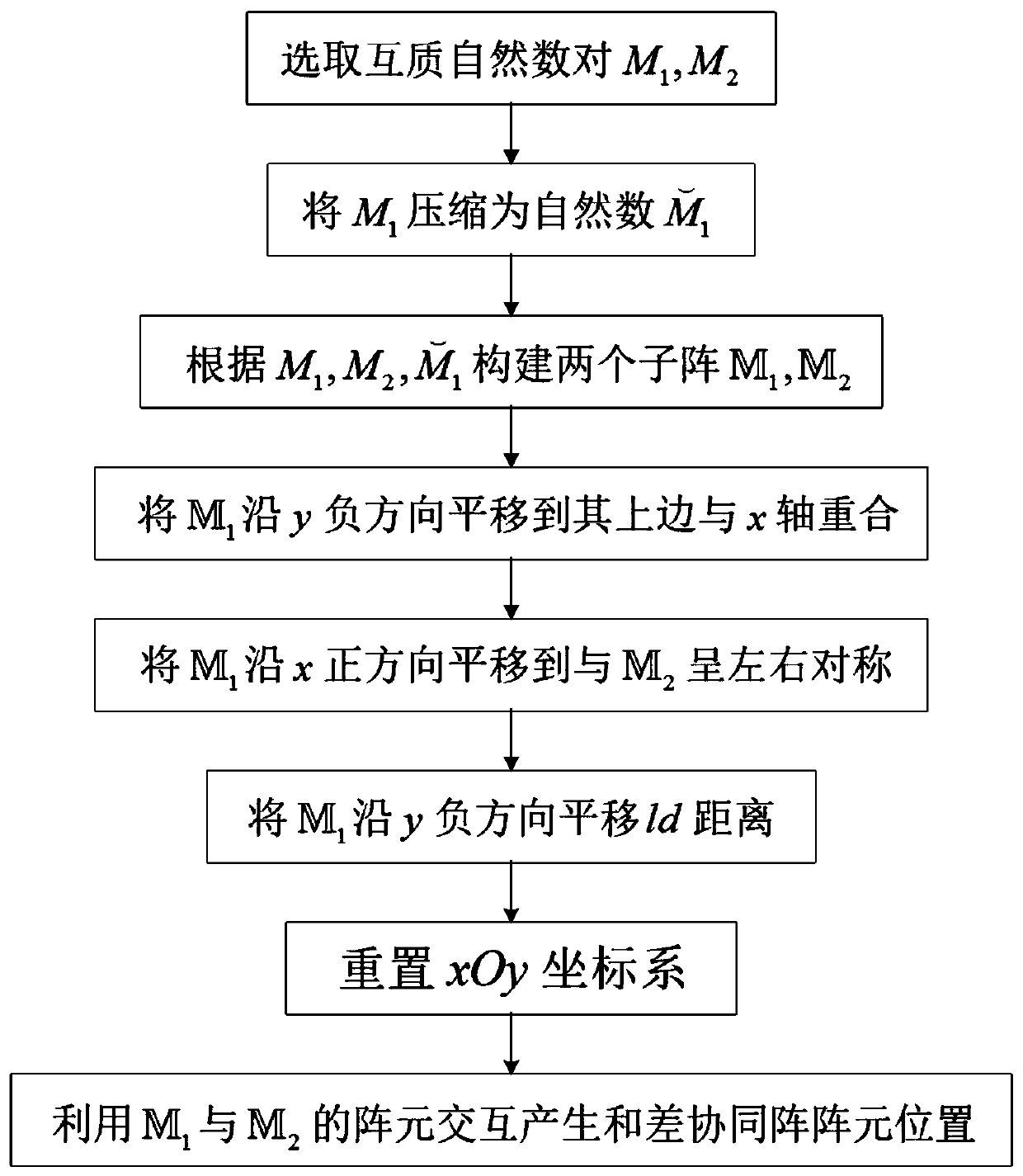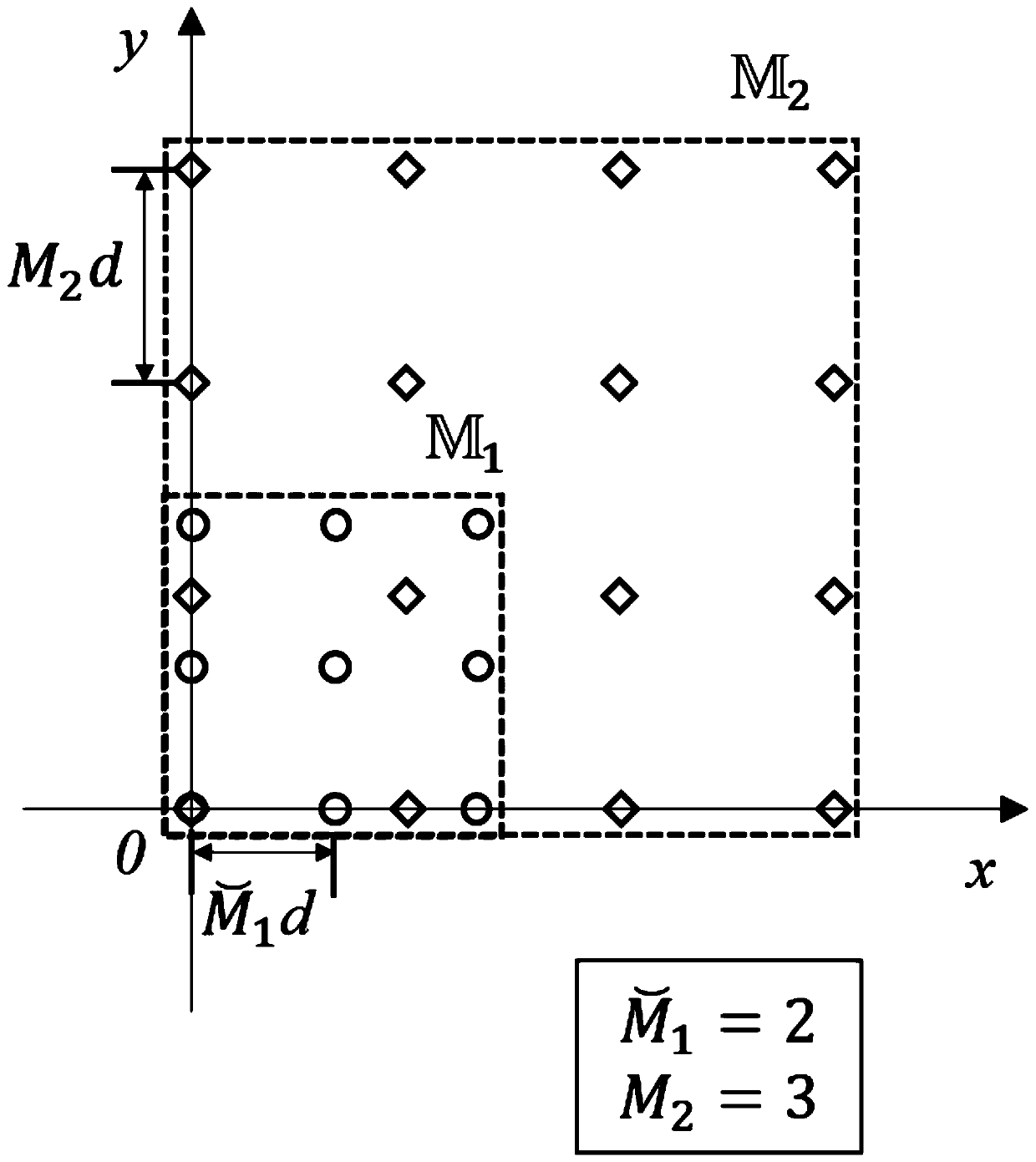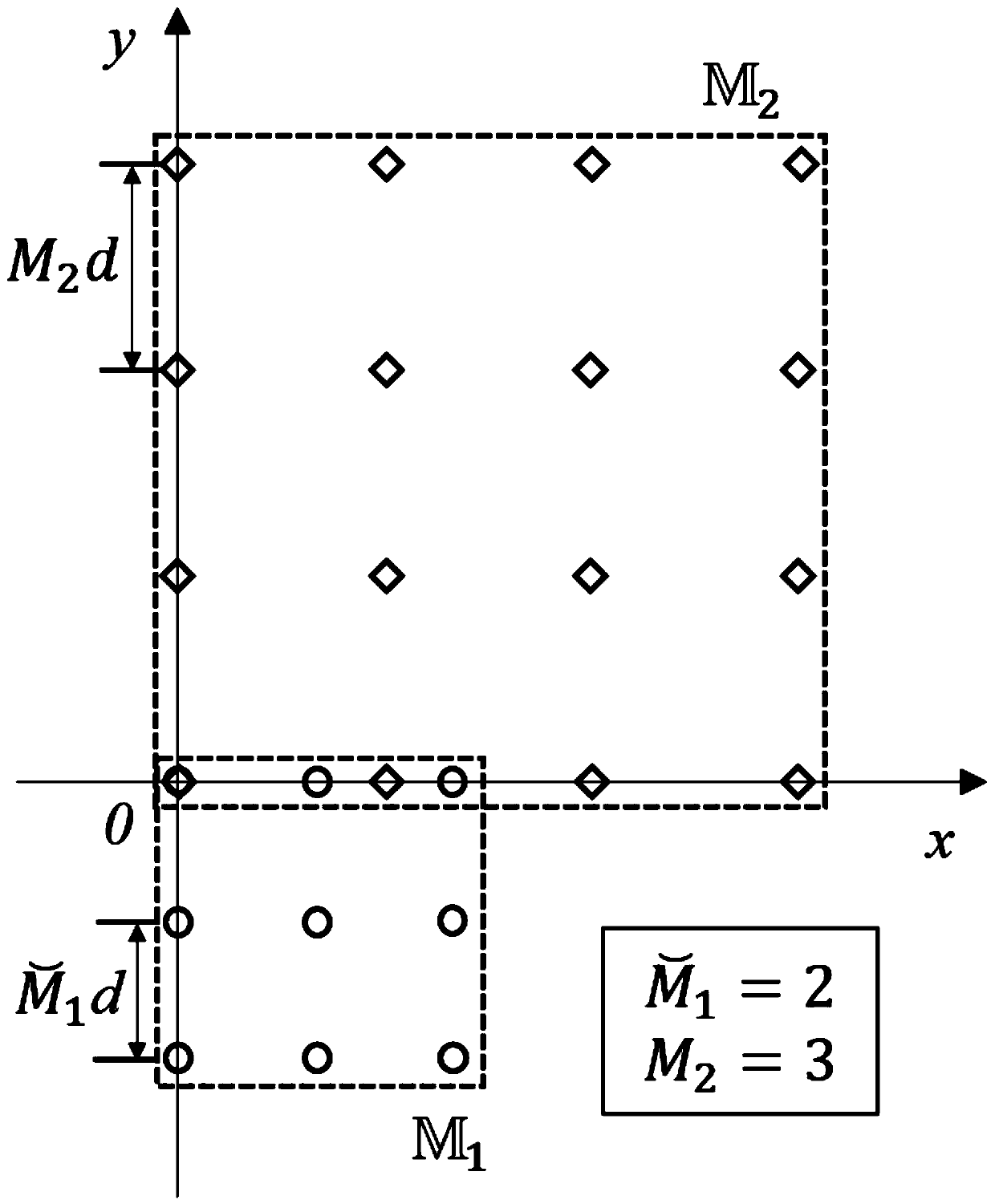Planar co-prime array design method based on sum-difference cooperative array construction
A design method and technology of synergistic arrays, which are applied to direction finder, direction finder using electromagnetic waves, direction finder using radio waves, etc., can solve the problems of one-dimensional linear sparse array limited by synergetic array with difference, etc. achieve the effect of reducing the impact
- Summary
- Abstract
- Description
- Claims
- Application Information
AI Technical Summary
Problems solved by technology
Method used
Image
Examples
Embodiment Construction
[0033] The technical solutions and effects of the present invention will be described in detail below in conjunction with the accompanying drawings.
[0034] Step 1. Determine the basic parameters of the planar coprime array; select the coprime natural number pair M 1 = 4, M 2 =3, where M 1 =2×2, namely
[0035] Step 2, construct two sub-arrays of the planar coprime array respectively on the xCy coordinate plane; wherein the sub-arrays It consists of 3×3=9 array elements, and the distance between adjacent array elements is The array element position is Such as figure 2 The "○" in indicates the sub-array array element position; subarray It consists of 4×4=16 array elements, and the distance between adjacent array elements is M 2 d=3d, the array element position is Such as figure 2 The "◇" in indicates the sub-array The position of the array element; the leftmost array element of the two sub-arrays coincides with the coordinate origin O;
[0036] Step 3, t...
PUM
 Login to View More
Login to View More Abstract
Description
Claims
Application Information
 Login to View More
Login to View More - R&D
- Intellectual Property
- Life Sciences
- Materials
- Tech Scout
- Unparalleled Data Quality
- Higher Quality Content
- 60% Fewer Hallucinations
Browse by: Latest US Patents, China's latest patents, Technical Efficacy Thesaurus, Application Domain, Technology Topic, Popular Technical Reports.
© 2025 PatSnap. All rights reserved.Legal|Privacy policy|Modern Slavery Act Transparency Statement|Sitemap|About US| Contact US: help@patsnap.com



